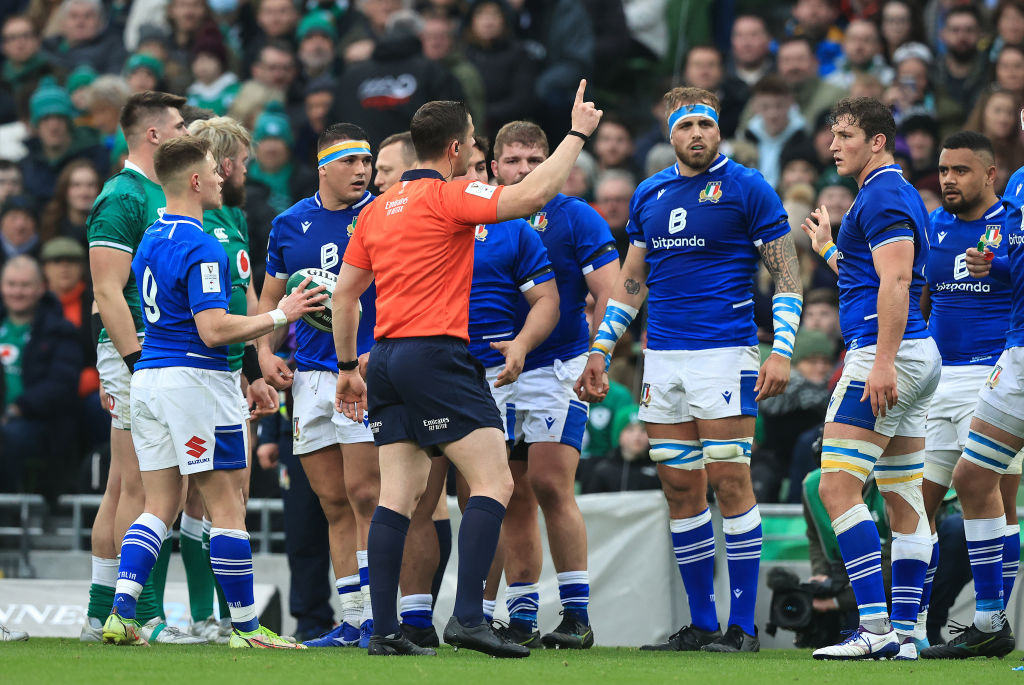After Italy farce rugby needs to take a look at its law book

Ireland’s Six Nations victory over Italy on Sunday saw an officiating decision which by the letter of the law was correct but in practice ruined a game of rugby.
Here is what was so wrong about it and two more rules that World Rugby should address before the World Cup next year:
Red card replacement
Italy’s day looked somewhat doomed from the ninth minute against Ireland when hooker Gianmarco Lucchesi went off injured, to be replaced by Epalahame Faiva.
Ten minutes later, however, Faiva was sent off following a – correct – red card decision by referee Nika Amashukeli. This posed a problem for Italy, who were forced to go down to 13 as a result.
Rugby’s rules state that when a team loses two front row players from the same position, one due to injury and one due to foul play, they must lose an additional player in order to negate any advantage from going to uncontested scrums and bringing on an extra back.
The law was applied correctly, but it meant that Italy played for 60 minutes with just four backs because of the mistake of one forward. Ireland overwhelmed them and won 57-6.
That regulation was changed after the infamous 100-minute match between France and Wales in 2017, where there were accusations of teams deceiving officials over injuries to front-row players to avoid full scrums.
The rule is therefore there for a reason, but when there’s such a blatant injury, dislocation to the elbow – important for a front row – and a red card, there shouldn’t be such a punishment.
Calling the mark
One of the most irritating things when you’re watching a game of rugby? When your team puts up a brilliantly competitive kick just for the defence to catch it and call the mark inside their own 22 metre area, thus relieving all pressure on the player.
Teams should be rewarded for their kick chase while defences should be punished for allowing the kick to happen without pressure.
This law would, of course, need to be refereed properly because kick chases could lead to big hits which must be kept legal.
HIA protocol
Far too often we see players go off for head injury assessments when they’re dazed following a head-on-head contact, but what about the other player?
Tomas Francis was allowed to return to play despite initially looking completely dazed. Both the tackler and attacker should be checked.
Rugby is a dangerous sport and it’s paramount that the players are looked out for, even when they say they’re unhurt.